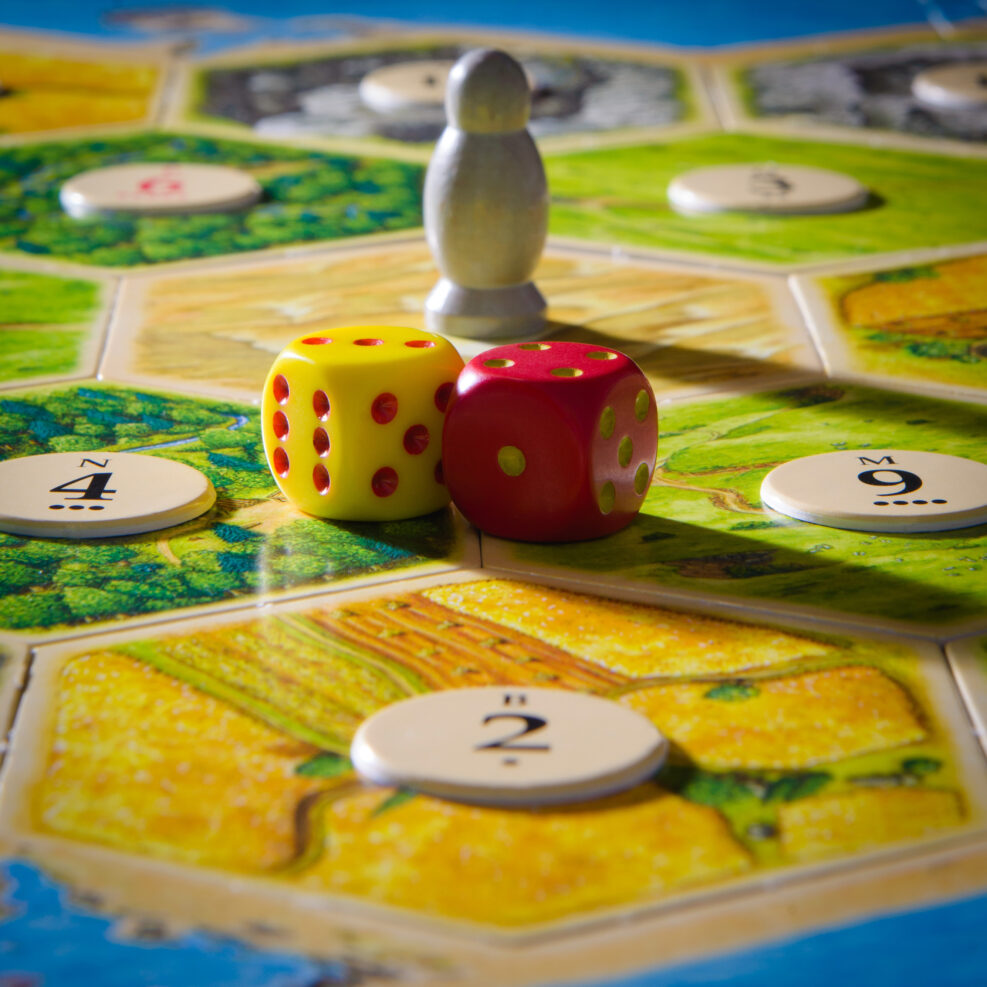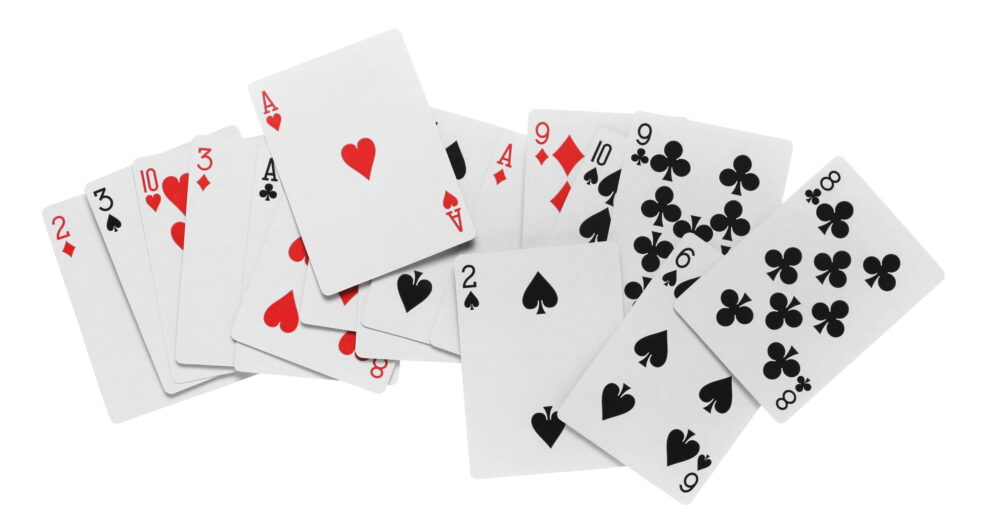
TagProbability


Could Our Minds Be Bigger Than Even a Multiverse?
The relationship between information, entropy, and probability suggests startling possibilities. If you find the math hard, a face-in-the-clouds illustration works too
Let’s Dispose of Exploding Pie Charts
Pie charts are seldom a good idea. Here's why.
The MLB Coin-Flipping Contest
What are the chances that wild-card teams will make it to the World Series and win?
Sabrina Ionescu’s Hot Hand
When basketball players hit a "streak," does that elevate the probability of success?
Gambling: WHY the House Always Wins in the Long Run…
The casinos are not cheating. They rely on the Law of Large Numbers, part of the mathematical structure underlying our universeIn this week’s podcast, “The house always wins in the long run” (June 2, 2022), Walter Bradley Center director Robert J. Marks interviews mathematician, computer scientist, and engineer Salvador Cordova on a subject on which he has strong views: gambling. Marks tells us, “I teach a graduate course on probability and stochastic processes. There I teach the stupidity of casino gambling. In statistics, there’s a theorem called the Law of Large Numbers. It teaches that you can’t win in the long run at casino games. Period. The law of large numbers is a mathematical truth. It’s a law as serious as the law of gravity. It’s why casinos always get rich and the gambler always gets poor. There is a Read More ›

Why Did Video Gamers Uncover Fraud More Easily Than Scientists?
Video gamers are subject, a psychologist tells us, to much more rigorous constraints than scientistsIn a recent article at The Atlantic, King’s College psychologist Stuart Ritchie, author of Science Fictions: How Fraud, Bias, Negligence and Hype Undermine the Search for Truth (2020), has noted a curious fact: Video gamers are much quicker to spot fraud than scientists. The video game fraud he focuses on involved a gamer’s claim that he had finished a round of Minecraft in a little over 19 minutes, a feat he attributed, Ritchie tells us, to “an incredible stretch of good luck.” “Incredible” is the right choice of word here. “Dream,” as the player was known, later admitted — in the face of skepticism — that he had “inadvertently” left some software running that improved his game — thus disqualifying Read More ›

How the Explanatory Filter Can Help Quash Conspiracy Theories
I found Dembski’s explanatory filter quite helpful in investigating voter fraud claimsWilliam Dembski’s explanatory filter is a decision strategy for identifying events that are unlikely to have happened purely by chance. The filter proceeds in three main steps, which can be illustrated via the plot device in Contact, a novel (1985) by Carl Sagan, followed by a film (1997): Eliminate events of large probability (necessity): A radio telescope receives a pattern of beeps and pauses. Perhaps the pattern seems strange to us but we could just be overinterpreting inevitable space noise. Eliminate events of medium probability (chance): The pattern turns out to be a sequence of prime numbers. However, large randomly generated numbers sometimes feature apparent patterns (five 5s in a row, for example) that don’t signify anything. Specify the event Read More ›

Steph Curry Got Red Hot and Torched the “Hot Hand Fallacy”
Many statisticians dismiss remarkable streaks like his as the Hot Hand Fallacy. Are they right?
Can an 18th Century Statistician Help Us Think More Clearly?
Distinguishing between types of probability can help us worry less and do moreThomas Bayes (1702–1761) (pictured), a statistician and clergyman, developed a theory of decision-making which was only discussed after his death and only became important in the 20th century. It is now a significant topic in philosophy, in the form of Bayesian epistemology. Understanding Bayes’ Rule may be essential to making good decisions. Let’s say that you are a generally healthy person and have no symptoms of any illness and no specific risk factors for any illness. Acting on a friend’s suggestion, you get screened for a variety of diseases, just to be sure. Of the diseases you test for, the HIV test comes back positive. You read on the package that the test is 99.6% accurate. Are you more likely Read More ›

How Scientists Have Learned To Work With the Quantum World
It’s still pretty weird, thoughIn last week’s podcast, “Enrique Blair on quantum computing,” Walter Bradley Center director Robert J. Marks talks with fellow computer engineer Enrique Blair about why quantum mechanics is so strange. But scientists have learned to work with QM, despite many questions, like how to work with particles that can be in two different places (quantum superposition): https://episodes.castos.com/mindmatters/Mind-Matters-110-Enrique-Blair.mp3 [Starts at approximately 13:16.] The Show Notes and transcript follow. Excerpts from the transcript: Robert J. Marks: What’s superposition? What’s going on there? Enrique Blair: Quantum superposition is really a mathematical description. We use wave functions to describe these particles. There’s a wave function for the photon going through Slit One and a wave function for the photon going through Slit Two. To Read More ›

In Science, We Can’t Just “Settle” for Data Clusters
The board game, Settlers of Catan, offers a clear illustration of what can go wrong when we are duped by data clustersSettlers of Catan is an incredible board game created by Klaus Teuber, a German game designer. It has been translated into dozens of languages and tens of millions of sets have been sold. The basic four-player board consists of 19 hexagons (hexes) representing resources: 3 brick, 4 lumber, 4 wool, 4 grain, 3 ore, and 1 desert. Players acquire and use resources based on dice rolls, card draws, trading, and the location of their settlements and cities. Part of the game’s seductive appeal is that there are many, many ways to arrange the 19 hexagons and successful strategies depend on how the hexagons are arranged. The rules are simple but winning strategies are complex and elusive. The official rules of Read More ›

What Happened When 1950s China Dreamed of “Total Information”?
When China rejected random sampling in favor of exhaustive enumeration of individuals, masses of “data” flooded in, but what did it mean?A historian of modern China recounts the outcome of a momentous decision that China’s new Communist rulers made in the 1950s. They decided to abandon conventional methods of gathering statistics that use probability and adopted the method of exhaustive counting of everybody and everything. Why did their dream of total information became a nightmare? Harvard historian Arunabh Ghosh (right), author of Making It Count: Statistics and Statecraft in the Early People’s Republic of China (2020), explains that in the 1950s, newly communist China faced a choice about how to survey the population accurately while making “a clean break with the past.” For philosophical reasons, debates about how to gather statistics came to the fore: In a speech in 1951, Li Read More ›

Machine Learning: Decision Trees Can Solve Murders
Decision trees increase our chance at a right answer. We can see how that works in a mystery board game like ClueEntropy is a concept in information theory that characterizes the number of choices available when a probability distribution is involved. Understanding how it works helps us make better guesses.
Read More ›
Machine Learning: Using Occam’s Razor to Generalize
A simple thought experiment shows us howThis approach is contrary to Fisher's method where we formulate all theories before encountering the data. We came up with the model after we saw the cards we drew.
Read More ›
Occam’s Razor Can Shave Away Data Snooping
The greater an object's information content, the lower its probability.One technique to avoid data snooping is based on the intersection of information theory and probability: An object’s probability is related to its information content. The greater an object’s information content, the lower its probability. We measure a model’s information content as the logarithmic difference between the probability that the data occurred by chance and the number of bits required to store the model. The negative exponential of the difference is the model’s probability of occurring by chance. If the data cannot be compressed, then these two values are equal. Then the model has zero information and we cannot know if the data was generated by chance or not. For a dataset that is incompressible and uninformative, swirl some tea Read More ›

How Do We Know What Superintelligent AI Will Do?
If superintelligent systems existed, logic demonstrates that they would be unpredictableA lower intelligence can’t accurately predict all decisions of a higher intelligence, a concept known as Vinge’s Principle.
Read More ›
The World Series: What the Luck?
Who will win the World Series? I don’t know, but I do know that baseball is the quintessential game of luckThink about it. Line drives hit right at fielders, mis-hit balls dying in the infield. Fly balls barely caught and barely missed. Balls called strikes and strikes called balls. Even the best batters make twice as many outs as hits. Even the best teams lose more than a third of their games. This season, the Houston Astros had the highest win percentage (66.0%) in baseball, yet they lost two out of six games to Baltimore, which only won a third of their games—not because Baltimore was the better team, but because Baltimore was the luckier team in those two games. The Astros are one of the 10 best teams this season (along with the Yankees, Tampa Bay, Minnesota, Cleveland, Oakland, Read More ›

The Paradox of Luck and Skill
Why did Shane Lowry win the British Open golf championship? Because someone had toIn any competition including academic tests, athletic events, and company management where there is an element of luck that causes performances to be an imperfect measure of ability, there is an important difference between competitions among people with high ability and competitions among people of lesser ability.
Read More ›